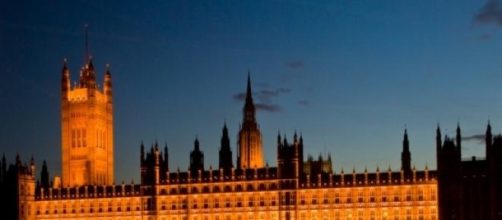The 2015 General Election looks set to be the most unpredictable since the immediate post-war years and distrust of politicians has played a somewhat surprising role in formation of the current landscape.
Research carried out for Southampton University by YouGov has found that only ten percent of Britons believe that politicians actually want to 'do their best for the country'. Meanwhile, 72 percent of people feel that politics is dominated by self-serving politicians, looking out for the interests of the already rich and powerful, at the expense of ordinary members of society.
It is not hard to see why such opinions are so prevalent. The expenses scandal and the war in Iraq did a huge amount of damage. Moreover, recent austerity measures have disproportionately targeted the poorer members of society, at a time when they are being bombarded with headlines about bankers' bonuses and the increased wealth of the richest 1% of the world's population.
The statistics presented in the YouGov study demonstrate a significant increase in distrust since the 1940s and 1970s, when similar surveys were conducted. And while it may not take a study to tell you that faith in politicians is at an all-time low, the research also revealed an interesting trend.
People demonstrating a distrust of politicians are significantly more likely to vote for an outsider party, with UKIP being the biggest beneficiary.
In fact, people are three times more likely to vote for UKIP if they express cynical attitudes towards politicians, according to the researchers.
Now, that is not entirely surprising. After all, support for UKIP has been widely regarded as a 'protest vote' for some time. However, they have not been the only beneficiary, as the Green Party have also seen a significant increase in support amongst the disillusioned.
Membership of the Green Party of England and Wales has sky-rocketed, gaining more than 13,000 new members in the space of around a week. As a result, the Greens now have more members than both the Liberal Democrats and UKIP. Although it is unlikely to do so, if that trend of increased membership continued at its current rate, the party would have more members than both Labour and the Conservatives by the time of the General Election.
Numerous recent polls also show support for the Green Party at around 10 percent; its largest number for two decades and roughly one percentage point higher than the Liberal Democrats. In particular, young people are starting to turn towards the Greens, with a recent YouGov poll placing support for the party amongst 18 to 24 year olds at 22 percent.
In Scotland, support for the SNP continues to grow and after the referendum on Scottish Independence, so does overall engagement with politics. For example, roughly a quarter of 16 and 17 year olds are now members of a political party and almost half have attended a campaign event in the last year. The Scottish Greens have also increased their membership by 400 percent.
All of this would appear to show that, rather than becoming less engaged with politics, people who distrust politicians still retain some faith in the political system itself. They want to force change by supporting someone new. Disillusionment with politicians does not necessarily translate to disillusionment with politics itself.
Of course, with a first-past-the-post system, such bleary-eyed optimism could set a lot of people up for a huge anti-climax come May. After all, regardless of all this support for different parties, we all know that either David Cameron or Ed Miliband will be Prime Minister in the aftermath of the election.
Nonetheless, votes for outsider parties could also have a major influence on the outcome, especially in the event of another hung parliament.
Even without that outcome, UKIP could cut into the Tory vote, while the Greens could eat into Labour's support.
As a result, either party could be left wishing they had been able to instil more confidence in the electorate.
Rob Hayward recently described May's General Election as the 'election of the aggrieved' and it appears the aggrieved are keen to make their voices heard.

